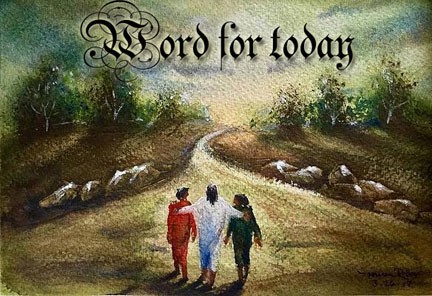Watch
Events
Articles
Market
More
Israeli Archaeology has become a political battleground: https://thekingdomnetwork.us/2....025/05/05/israeli-ar



Is #godslaw really too hard for anyone to keep? If it is, then why did Moses say it isn't?
#torah is about living in harmony with God, your community, the world, your neighbor, and even yourself. Torah is called "The Law of Moses" or sometimes simply "Moses," but make no mistake. These are the words of God given through Moses. They are not merely the words of Moses, and they are not too hard for you. Most of it is self-evident, enlightened self-interest, but this isn't sufficient to remove sin from your soul. Only divine action can do that.
#leviticus 19:1
#kedoshim
https://www.americantorah.com/....2020/04/29/is-the-la



New episode, Can The Bible Predict The Weather?. Listen where you get your favorite podcasts, use the player on our homepage or here https://www.spreaker.com/show/....give-god-90-episode- With a free account you can join the chat or leave a message, please consider liking and sharing these podcasts.




Here are some New Testament passages I recommend studying with #torah portion #kedoshim ("Holy ones" #leviticus 19-20, the second half of this week's double portion), along with links to related commentary and videos.
#biblestudy
https://www.americantorah.com/....2022/03/23/parsha-ke



050825
Day 19 of counting the omer. The meaning of 19, which is the combining of 10 and 9, revolves around God's perfect order concerning HIS judgment in the Bible. The names Job and Eve, if we substitute letters for numbers, add up to 19.
WORD FOR TODAY do you really do this? : Luk 20:25 And He said to them, "Then render to Caesar the things that are Caesar's, and to God the things that are God's."
WISDOM FOR TODAY: Pro 19:1 Better is a poor man who walks in his integrity Than he who is perverse in speech and is a fool.
www.BGMCTV.org




In Matt 1:23 we read: "...and they shall call His name Emmanuel" (which being interpreted is, 'God with us'.
This is the only verse where Emmanuel is written in English. It looks like a translation issue similar to how "Morning Star" is mistranslated and rather transliterated from Latin as "Lucifer" in Isaiah 14:12.
Are there any reason to use "Emmanuel" as a name for Yeshua or is it like a "middle name" if it is an actual name?
I don't have a problem with the verse if it was translated as "and they shall call Him 'God with us'" as that is a position/role rather than an actual first name.
If then not a name then should we even use it in songs to refer to Yeshua? I have even heard some Torah groups singing songs with Emmanuel as a replacement name for Yeshua in it...
#emmanuel #godwithus


